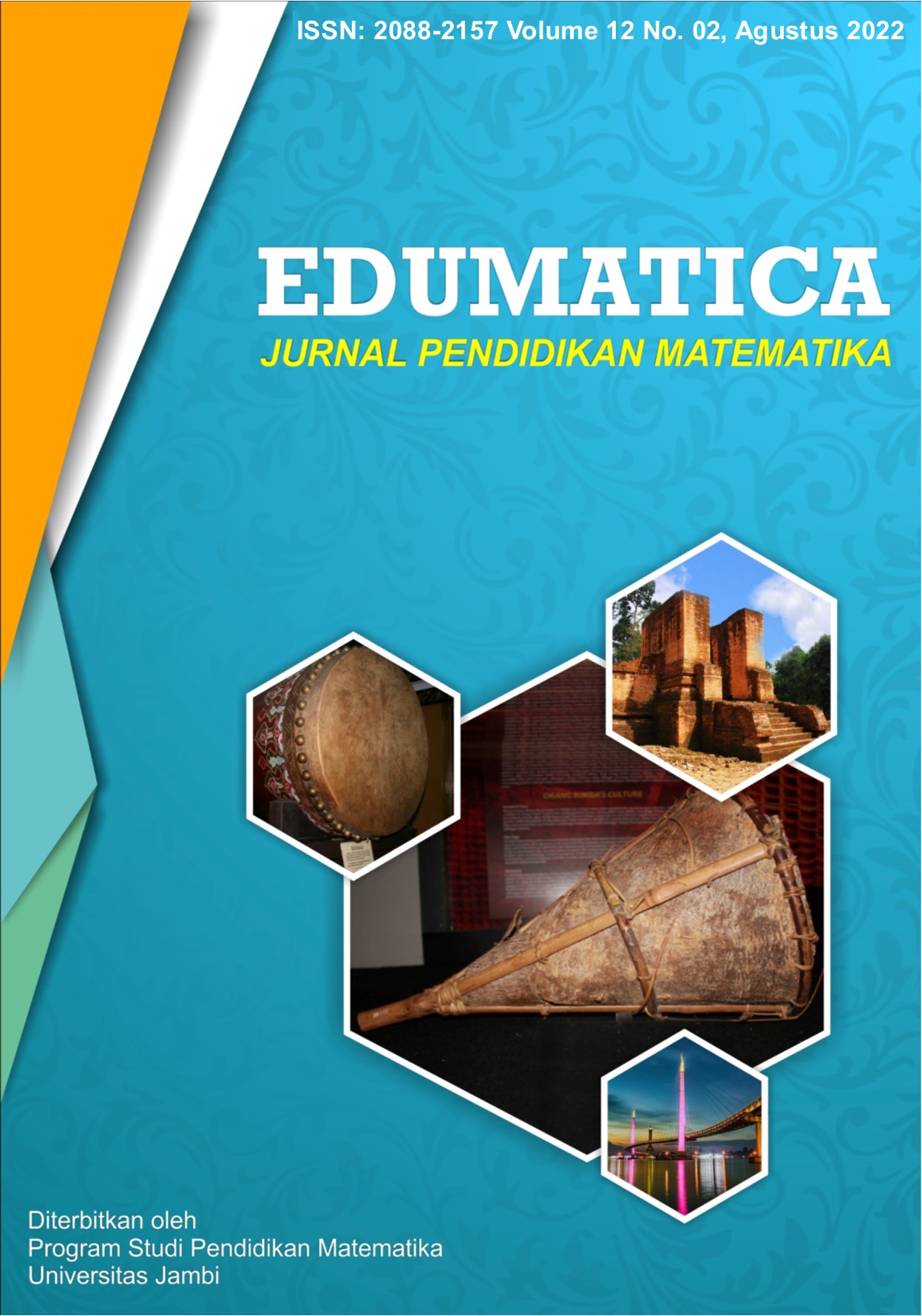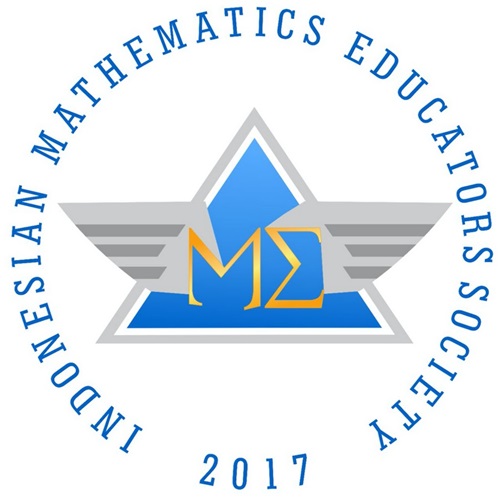The Effect of Problem Based Learning on Mathematical Disposition and Students' Problem Solving Ability
DOI:
https://doi.org/10.22437/edumatica.v12i02.15772Keywords:
problem-based learning, mathematical disposition of students, problem solving abilities of studentsAbstract
Problem based learning on the mathematical disposition and problem solving abilities of students is the ability to think and mathematical attitudes that must be possessed by students. Through the application of problem-based learning, it is hoped that it can improve the problem solving ability of students' mathematical dispositions. This study was conducted to determine the effect of problem-based learning on problem-solving abilities on students' mathematical dispositions. The research design used is a quasi-experimental design, namely the pretest-posttest control group design with a population of all students of class X SMK Az-zahra in the academic year 2021/2022. Through purposive random sampling technique, the TKJ 3 class was obtained as the experimental class (n = 36) and the TKJ 2 class as the control class (n = 36). Collecting data using a test of problem solving ability and mathematical disposition. Data analysis was carried out descriptively and inferentially (α = 0.05). Based on data analysis, it is known that the increase in problem solving abilities of students who receiving problem..based learning is higher than students who receive conventional learning. The increase in the mathematical disposition of students who received problem-based learning was higher than students who received conventional..learning. so the conclusion is problem-based learning can improve problem-solving skills on students' mathematical dispositions.
Downloads
References
Asmara, A. S. (2016). Peningkatan Kemampuan Pemecahan Masalah. Pasundan Journal of Mathematics Education (PJME), 6(2), 12-22.
Davidson, R. N., Lynn, W., Savage, P., & Wansbrough-Jones, M. H. (1988). Implementasi brain-based learning untuk meningkatkan kemampuan koneksi dan kemampuan berfikir kritis serta motivasi belajar siswa SMP. Thorax, 43(8), 627-630. https://doi.org/10.1136/thx.43.8.627
Khaeroh, A., Anriani, N., & Mutaqin, A. (2020). Pengaruh model pembelajaran problem based learning terhadap kemampuan penalaran matematis. 2(2010), 73-85.
Mariam, S., Nurmala, N., Nurdianti, D., Rustyani, N., Desi, A., & Hidayat, W. (2019). Analisis kemampuan pemecahan masalah matematis siswa MTsN dengan menggunakan metode open ended di bandung barat. Jurnal Pendidikan Matematika, 3(1), 178-186.
Nurkamilah, M., Nugraha, M. F., & Sunendar, A. (2018). Mengembangkan Literasi Matematika Siswa Sekolah Dasar melalui Pembelajaran Matematika Realistik Indonesia. Jurnal Theorems (The Original Research of Mathematics), 2(2), 70-79. https://doi.org/http://dx.doi.org/10.31949/th.v2i2.722
Oktoviani, V., Widoyani, W. L., & Ferdianto, F. (2019). Analisis kemampuan pemahaman matematis siswa SMP pada materi sistem persamaan linear dua variabel. Edumatica : Jurnal Pendidikan Matematika, 9(1), 39-46. https://doi.org/10.22437/edumatica.v9i1.6346
Rambe, A. Y. F., & Afri, D. L. (2020). Analisis kemampuan pemecahan masalah matematis siswa dalam menyelesaikan soal materi barisan dan deret. AXIOM : Jurnal Pendidikan Dan Matematika, 09(2), 175-187.
Sari, E. P., & Karyati. (2020). Keefektifan model pembelajaran CORE ditinjau dari kemampuan koneksi matematis, representasi matematis, dan kepercayaan Diri Siswa. Jurnal Riset Pendidikan Matematika, 7(2), 227-240.
Sartono, E. K. E. (2020). Pengembangan media kereta budaya untuk menanamkan karakter cinta tanah air siswa kelas IV SD. Jurnal Teknologi Pendidikan, 08(01), 62-82.
Setiawardhani, R. T. (2013). Pembelajaran elektornik (e-learning) dan internet dalam rangka mengoptimalkan kreativitas belajar siswa. Jurnal Ilmiah Pendidikan Ekonomi Unswagati, 1(2), 82-96.
Suhartono, S. (2018). Mengajarkan Pemecahan Masalah Matematika di Sekolah Dasar. Matematika Dan Pembelajaran, 6(2), 215. https://doi.org/10.33477/mp.v6i2.671
Syaiful. (2011). Peningkatan kemampuan pmecahan masalah matematis melalui pendekatan matematika realistik. Jurnal Pendidikan Matematika Dan Sains, 16(1), 9-16. https://doi.org/10.21831/jpms.v16i1.12203
Wulan, P., Davita, C., Nindiasari, H., & Mutaqin, A. (2020). Pengaruh model problem based learning terhadap kemampuan pemahaman matematis ditinjau dari kemampuan awal matematis siswa. 2.
Downloads
Published
How to Cite
Issue
Section
License
Copyright (c) 2022 Imam Gozali, Syamsuri Syamsuri, Hepsi Nindiasari, Abdul Fatah

This work is licensed under a Creative Commons Attribution-NonCommercial-ShareAlike 4.0 International License.







